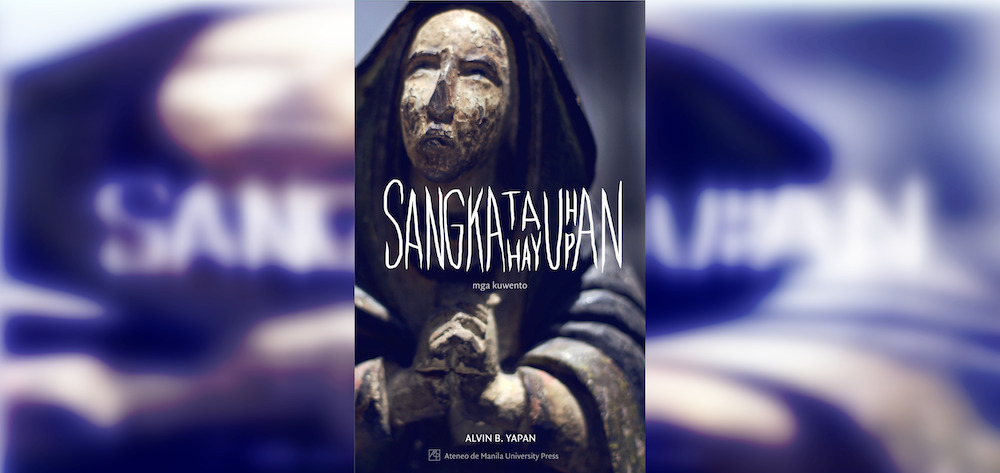By Matthew Sharpe
There was a big puddle of green liquid in the middle of the street. Leslie stood on the sidewalk waiting for the light to change. The warm spring sun shone down on her bare legs. A car sped through the puddle and the green liquid flew up onto her legs, her hands, her white shorts, and her beautiful white sweater. She felt a drop hit her lip. She gasped and leapt back, too late. The remaining liquid swayed back and forth in the shallow hole in the street, awaiting the tires of another car. Leslie looked down and saw the bright green flecks on her legs, her shorts, her soft sweater. She carefully located an untouched area of her right sleeve, raised it to her bottom lip, and wiped away the drop. Her lip stung, as did the places on her legs and hands where the drops had landed. The drops on her sweater and shorts were spreading out. She could not go to work like this. She should not have worn these clothes to work in any case, but, having shown a certain senior partner her intellect repeatedly without the desired result, she had decided that today, the first warm day of spring, she would show him her legs. And now the green liquid corroborated that this had been a poor decision. She went into a nearby Starbucks. There was always a nearby Starbucks. She went into the ladies’ room, dampened a paper towel, and wiped the green fluid first from her clothes, then from her skin. Painful bright red dots remained on her skin where the drops had been, and the unwashable stains went deeper into the fabric of her clothes. She was Lady Macbeth, but without Macbeth—she was just Lady, in the ladies’ room, and the only soul she’d ever murdered was her own, repeatedly. Like Banquo, it came back. She exited the ladies’ room intending to treat herself to a latte, now that her day had gone off the rails, but the number of people waiting in line to order their drinks in the invented vernacular Starbucks had trained them to use made Leslie change her mind. She was about to exit the shop when a man at a table in the back signaled her and pointed down to two lattes on his table, one presumably for her. He was not the senior partner of her fantasies of summer on the Cape and the long lawn down to the sea, he was an old homeless man whom she often saw sitting in front of the glass tower of which her law firm occupied three floors. Leslie’s father was an alcoholic who now resided in a state psychiatric facility and so she had less resistance than most paralegals to the allure of gray-haired derelict men. She sat beside him. He was ugly and dirty. His long hair and long beard were matted, his wool blazer—too warm for this spring day—greasy. She braced for his vaguely fecal smell to hit her nostrils. It did. She shivered in the icy air of the Starbucks. “Let me give you something to cover your legs,” the man said, and reached into a grimy, battered plastic bag on the floor by his blackened tennis shoes. He removed a stiff, stained pale blue towel and draped it over her thighs, on which blisters were now forming at the spots where the fluid had landed. She stared at the latte in the paper cup on the table in front of her. “Go ahead, I didn’t spit in it.” She brought the cup to her lips and tilted it up. The scalding liquid ran down her throat. “Donald Matthewson does not love you,” he said, naming the man of the dreams of the lawn chairs and the yacht. “He loves Karen Ingold,” he said, naming the new paralegal from Bryn Mawr. “How do you know this?” asked Leslie, who felt the latte perform its grim job of exciting her nerves to the edge of tolerability. “When you sit in front of a building begging for change ten hours a day, the people who work there eventually reveal themselves to you.” “They tell you?” “They show me.” “I’ve shown you that I love Donald?” She’d never said it out loud before. “You don’t love him. You don’t even know him.” Leslie was pretty, smart, relatively nice and normal, and that was why it was so perplexing that not one man of her own social station or higher ever courted her. The man said, “Kiss me.” “What?” “Kiss me,” he said, and cackled, showing brown teeth. “And everything I know will be transmitted to you through my lips, no joke.” She took another ill-advised gulp of corporate latte, pursed her young lips, closed her eyes, and leaned forward. She smelled him coming toward her. His old cracked lips suctioned hers. His wet tongue flicked the soft walls of her mouth. The blisters on her legs and hands and the one on her lower lip grew hotter and hotter. Everything ever done to him and everything he’d done entered the dark silent space of her mouth, went up through its roof, and spread out across her brain, not as pictures or words, but as feeling. She pulled away with a shout. The man pointed with his eyes toward three paralegals she worked with, staring at her in bewilderment and horror from the other side of the Starbucks. “Oh they’re not going to do anything,” Leslie said, staring them down. “Besides, even if I get fired, my insurance card will be good for three months—free visits to my primary care provider.” “Well then you better run along now and get those sores looked at before your card expires.”
_
Matthew Sharpe is the author of the novels You Were Wrong, Jamestown, The Sleeping Father, and Nothing Is Terrible, and the short-story collection Stories from the Tube. His work has appeared in The New York Times, Harper’s, The Los Angeles Times, Zoetrope, and other publications. He has received fellowships in fiction from the National Endowment for the Arts and the New York Foundation for the Arts.




